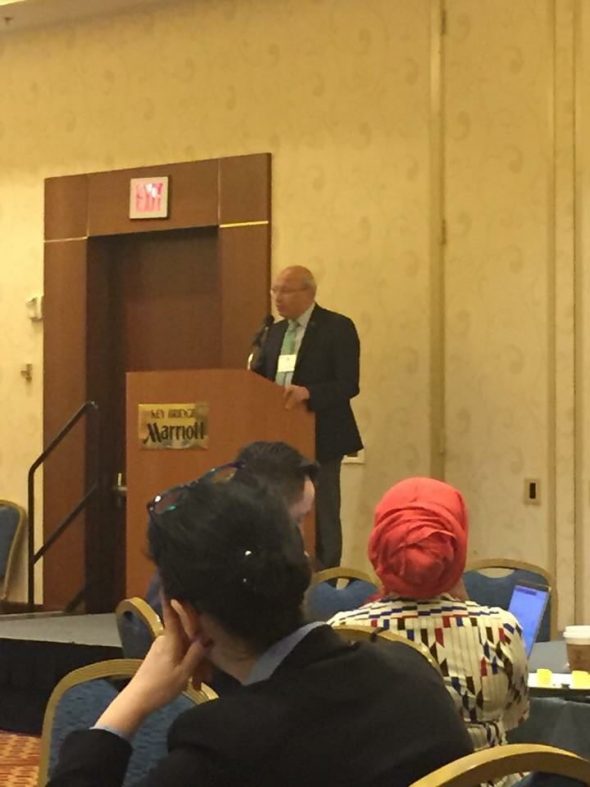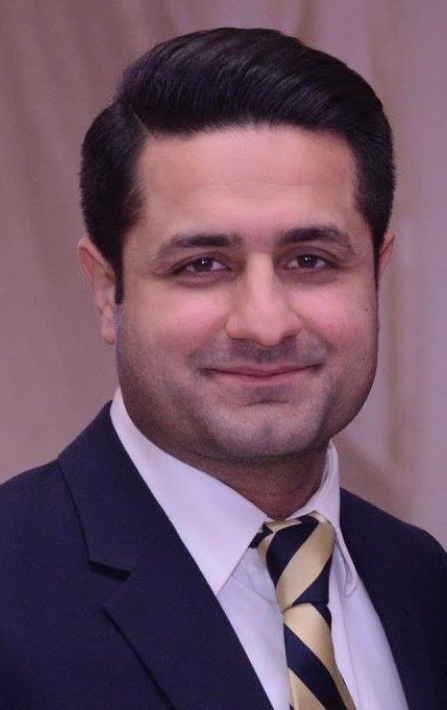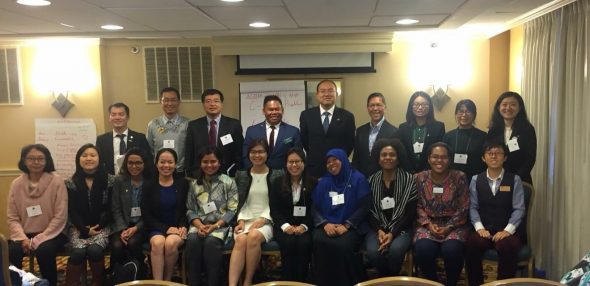
Alumni association is an immense network of professional contacts. This also applies to Humphrey Fellowship program. Global leadership Forum provides us a good platform to connect with former fellows.
What can we learn from former fellows?
According to Harvard business school, alumni networks turn out to be an especially effective kind of social network. This is in part because people often self-select into undergraduate and graduate programs that have social groups with interests closely aligned to their own, which generates both a higher level of interaction and longer-lived relationships.
One of the best part of GLF is building an extensively network for Humphrey fellows. First of all, it invites former fellows to attend the event and share their experiences. This year they invited extinguished alumnus like Utku Cakirozer who is a member of Turkey Parliament, to share their stories with Humphrey fellowship program and their career promotions after the program.

Utku Cakirozer
GLF is a great event with lots of surprises and opportunities. At State Department Reception, I met former fellow Omer Khan who used to be with University of Minnesota in 2016. We had pleasant conversation. He joined the Fragility, Conflict & Violence Group in the World Bank on June. His work focuses on the recovery and peace building assessments for countries that are facing or transitioning from crises or conflicts.

Omer Khan
When it comes to what he obtained from Humphrey program, Mr. Khan said he learnt lots of useful things including professional skills and leadership capabilities that promoted him to an advanced level. As an alumnus, he also helped arranged a meeting for current fellows at University of Minnesota with World Bank. He is very proud of helping and hosting Humphrey fellows.
What can we learn from current fellows?
Mr. Omer Khan is a good example of Humphrey Alumni. One of the key missions of Humphrey Fellowship is connecting the talented professionals around the world with each other. It is also very important that Humphrey program also nourishes the culture of mutual assistance within the fellows. Today’s fellow will become tomorrow’s alumnus. Although we no longer study together, but the network we build are still there.
During the group discussion divided by regions, I met lots of young professionals from other Asian countries. Their experience and expertise are exactly what I need. I am interested in China’s investment in Asian countries. Chinese companies encounter lots of problems with local communities when they conduct overseas projects. I want to find the solutions to help them solve the challenges. By speaking with Nazla Mariza and Fathimah Handayani, who both engaged with dealing Chinese companies in Indonesia, I obtained deeper understanding of the reasons leading to the conflict between Chinese companies and local communities. These are very useful resources for my future work.

East Asia group at GLF
What is the halo effect of Humphrey fellowship?
Humphrey fellowship is a very prestigious program. Its high reputation will help us broaden our network and business relationships. Prior to the GLF week, I had meetings with some important people like former Ambassador to China Stapleton Roy who is the senior researcher with Wilson Center. He spoke highly of Humphrey fellowship program. Ambassador Roy said he is willing to give more time for me because I am Humphrey Fellow. After GLF, I also met Scott Kennedy with CSIS. He pointed out that young journalists who have chance to participate in this program will have bright future.
Given this, we should make good use of this valuable year by comprehensively enhancing our capabilities and building up our networks. Also, this magic year provides our careers many unexpected opportunities and surprises. We must grab it.

